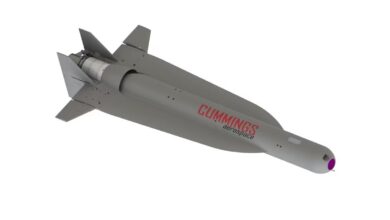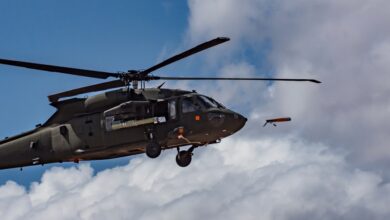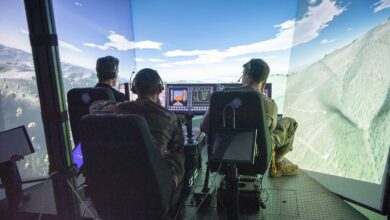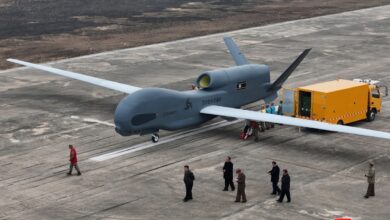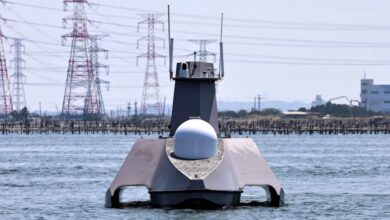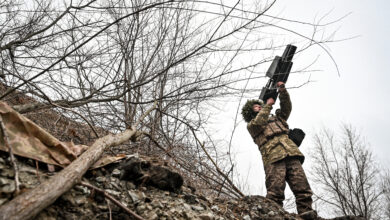US-led Coalition and Iraq resume operations against ISIS
Iraq and the U.S.-led Coalition will resume joint operations against Islamic State, nearly a month after attacks bases hosting American personnel forced a pause in the mission.
The Iraqi prime minister’s office said in a Thursday, January 30 statement that: “In light of the continuation of activity of Daesh terrorist gangs in a number of regions in Iraq, and in order to exploit what remains of time for the international Coalition before the organizing of a new relationship between our forces and the international coalition forces, it was decided to establish joint work which facilitates our forces in the field of air support, according to need, and [pertaining to] those forces which are designated by relevant operational commanders.”
The operations will continue “until it is agreed what form future cooperation will take, [a form] which achieves the sovereignty of Iraq over its land and airspace,” it said.
The statement was signed by Adel Abdul Mahdi, who is also commander-in-chief of the armed forces.
The Coalition did not immediately confirm the statement.
The Iraqi government previously refuted reports that the Iraqi Security Forces had resumed joint operations with the Coalition after a The New York Times report on January 15 cited two U.S. officials as saying the military wanted to prevent ISIS from gaining momentum or claiming a propaganda victory.
What the future relationship between the Coalition and Iraq could look like is anyone’s guess. NATO defense ministers are set to meet in Brussels next month and could finalize plans for the alliance to take a front seat in the Iraq training mission.
Other options include a coalition not fronted by the U.S. or changes to the existing coalition’s mandate, AFP reported on Wednesday.
It was unclear whether the Coalition had resumed training of Iraqi forces in the country. Over the weekend Germany said training had resumed in the Kurdistan Region, where eight Coalition partners are training Peshmerga fighters.
The training mission is set to shift to a mentoring relationship later this year. Coalition members have previously expressed to The Defense Post their uncertainty that Iraqi forces are prepared to stand on their own against ISIS.
Iraqi bases housing Coalition forces came under rocket fire late on January 4, the 13th such attack in the last two months, prompting the U.S. military to halt training of the Iraqi Security Forces and joint operations against ISIS.
In the meantime, Iraqi defense ministry spokesperson Yehia Rasool said that Iraqi Air Force F-16 jets had destroyed an ISIS training camp in the Hamrin mountains. The IAF has carried out subsequent missions against ISIS without Coalition warplanes.
Despite the declaration of victory over ISIS in Iraq in late 2017 and in Syria last spring, sleeper cells have proven capable of carrying out deadly attacks against both civilians and the security forces.
European and U.S. Coalition personnel relocated from bases in Iraq and the Kurdistan Region in anticipation of a retaliatory attack by Iran after the January 3 U.S. MQ-9 Reaper drone strike that killed Qassem Soleimani, commander of the Iranian Islamic Revolutionary Guard Corps Quds Force, and Abu Mahdi al-Muhandis, leader of the Iraqi Shia militia Kataib Hizbollah and de facto leader of the Hashd al-Shaabi.
Iran fired a volley of ballistic missiles at Iraq’s Al Asad airbase and a base in Erbil that host U.S. troops. No American soldiers were killed in the attack but more than a dozen have since been flown to Germany and Kuwait for medical treatment with symptoms of traumatic brain injury.
U.S. forces have operated against in Iraq since 2014, but the future of some 5,200 troops is in doubt after tensions boiled over after the killing of Soleimani and Muhandis. Caretaker Prime Minister Adel Abdul Mahdi vowed to oust American troops from Iraq in the days after the strike, and lawmakers passed a non-binding resolution to end the security agreement that allows foreign forces to operate in the country.
But Abdul Mahdi is only holding office until a replacement can be agreed, and the prime minister seemed to signal earlier this month that the next government could decide whether to oust U.S. troops.
And in remarks to his Cabinet that were published on January 15, Abdul Mahdi asked for a new prime minister who has “has full authority because these difficult, complicated circumstances, especially with pulling of the troops.”
“That needs a government with full authority so it can go forward,” he said.
After meeting with Iraqi President Barham Salih at Davos in Switzerland last week, President Donald Trump said the U.S. and Iraq had “a very good relationship.” “We’re talking about a lot of different things,” he said when asked about plans to pull troops.
“We have had an enduring relationship, and the United States has been a partner to Iraq and in the war against ISIS. This mission needs to be accomplished,” Salih said.
Trump has called on NATO to take on a bigger role in Iraq.
Secretary of State Mike Pompeo has refused Abdul Mahdi’s request to send a delegation to discuss a U.S. withdrawal.
Jared Szuba contributed reporting from Washington.



